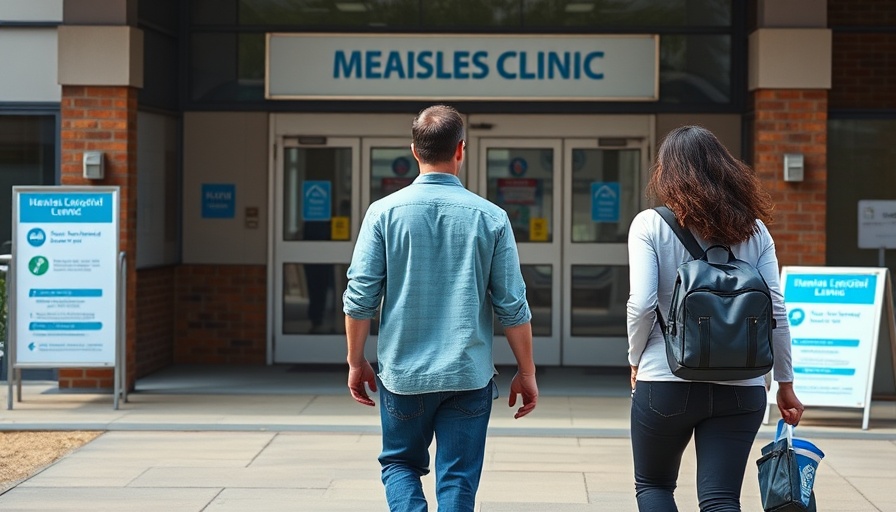
Why Measles Vaccinations Are More Important Than Ever
In a significant shift in health policy, the Centers for Disease Control and Prevention (CDC) has expanded its recommendations concerning measles vaccinations for international travelers. Previously focused on travelers headed to specific countries with reported outbreaks, the CDC now advises all U.S. residents—regardless of their destination—to receive the measles, mumps, and rubella (MMR) vaccine. This crucial update underscores the rising incidence of measles in various locales worldwide, prompting heightened vaccination protocols even for those traveling to regions without current outbreaks.
The Unexpected Rise of Measles Cases
As of late 2025, the U.S. has reported over 1,000 cases of measles, a worrying statistic that reflects an alarming trend. A recent outbreak in Colorado, linked to an international flight, has intensified concerns regarding how measles can spread not only through direct contact but also through airborne routes during transit. As highlighted by researcher Ashley Darcy-Mahoney of George Washington University's nursing school, this phenomenon indicates a shift from localized outbreaks to broader transmission networks exacerbated by travel.
The Science Behind Measles Vaccination
Measles is highly contagious, and it can lead to severe health complications if left unchecked. The MMR vaccine has proven effective over decades, preventing thousands of death and illness globally. The two-dose series is recommended for everyone aged one and older, with an early dose suggested for infants between six months and 11 months. This proactive approach fortifies community immunity, an essential line of defense against outbreaks that can quickly escalate.
Global Context: What’s Happening Elsewhere
Globally, measles remains a significant public health issue. Countries in Europe and Africa have seen a resurgence, mainly due to vaccine hesitancy and misinformation. The CDC's recommendation illustrates its recognition of global health interconnectivity; an unvaccinated person can unknowingly act as a vector for disease, affecting international populations. The CDC is prioritizing vaccine outreach and education to combat these trends, urging travelers to consider health implications seriously.
Understanding the Measles Vaccine’s Impact on Public Health
For community members in Davenport and surrounding areas, understanding the implications of this updated guidance is crucial. Vaccination is not just a personal choice; it's a community health issue. The more individuals are vaccinated, the less opportunity there is for measles to spread among those who cannot be vaccinated due to medical reasons. By protecting the most vulnerable, we help build a healthier community overall.
Questions and Concerns: Navigating Vaccine Hesitancy
Despite evidence supporting the efficacy of vaccines, hesitancy remains a challenge for many. Common misconceptions include the belief that measles is not a serious threat or concerns about vaccine safety. Addressing these issues through education is vital. Public health campaigns aimed at demystifying vaccines can help combat misinformation, promoting a culture of health and prevention.
Implementing Change: How Individuals Can Take Action
For individuals and families, the responsibility begins at home. Ensuring that all family members are up to date with their vaccinations is essential. Community leaders and health officials can support this by offering accessible vaccination clinics and disseminating clear information about the vaccine’s benefits. Engaging in open conversations about vaccination with friends and family can also help to alleviate fears and inform others about their importance.
In conclusion, the CDC’s updated recommendation for all international travelers to receive the measles vaccination highlights a crucial public health priority. By understanding and advocating for vaccinations, individuals contribute to a healthier community, ultimately protecting not only themselves but others as well. Take the simple step today of discussing vaccination options with your healthcare provider—your health and the health of those around you depend on it.
 Add Row
Add Row  Add
Add 






Write A Comment